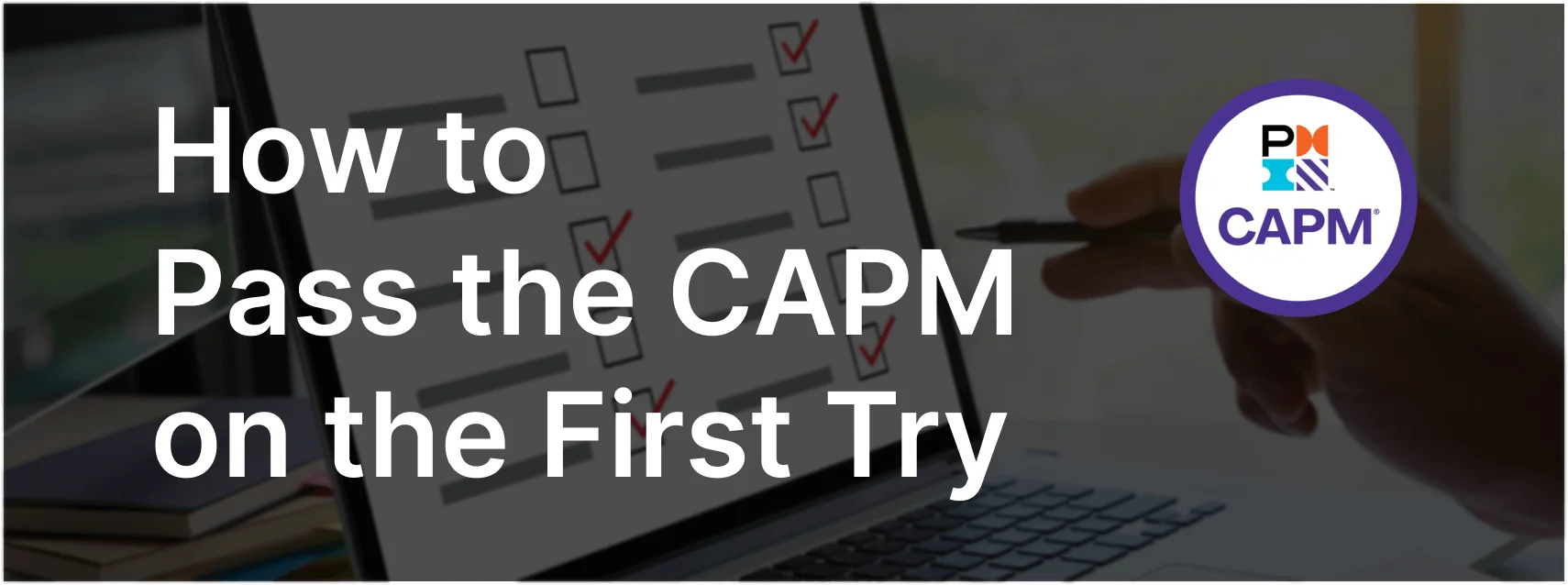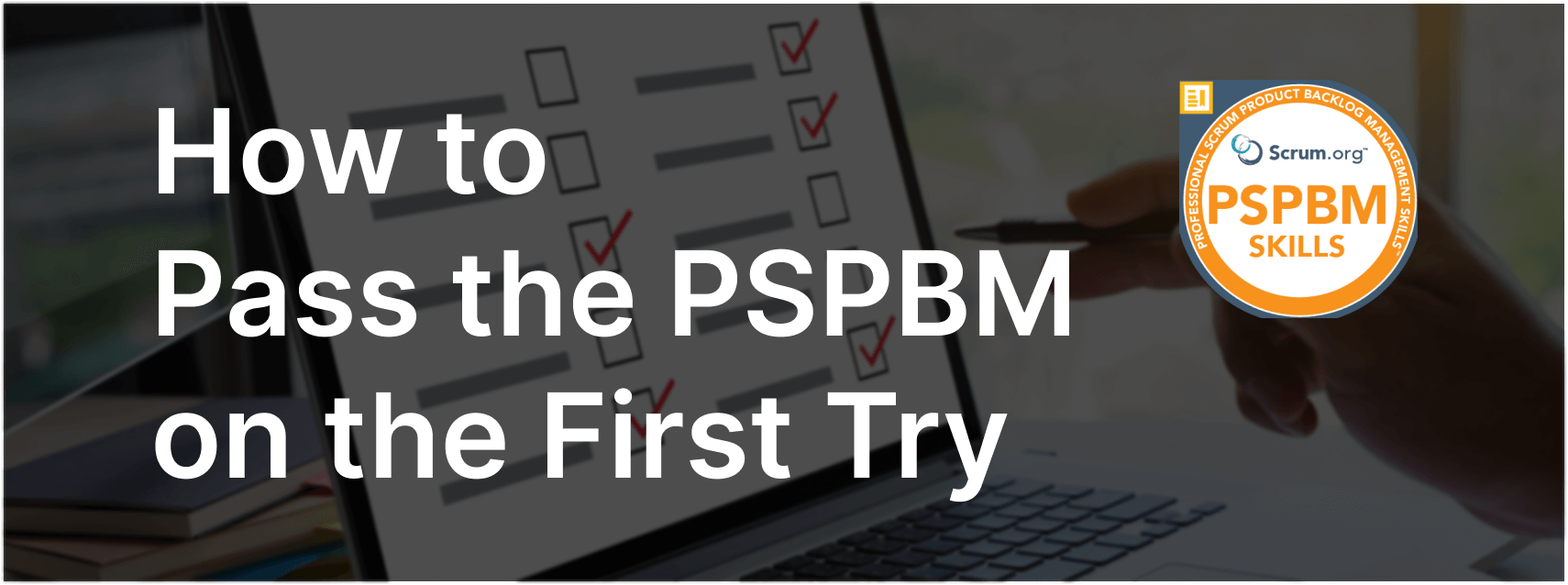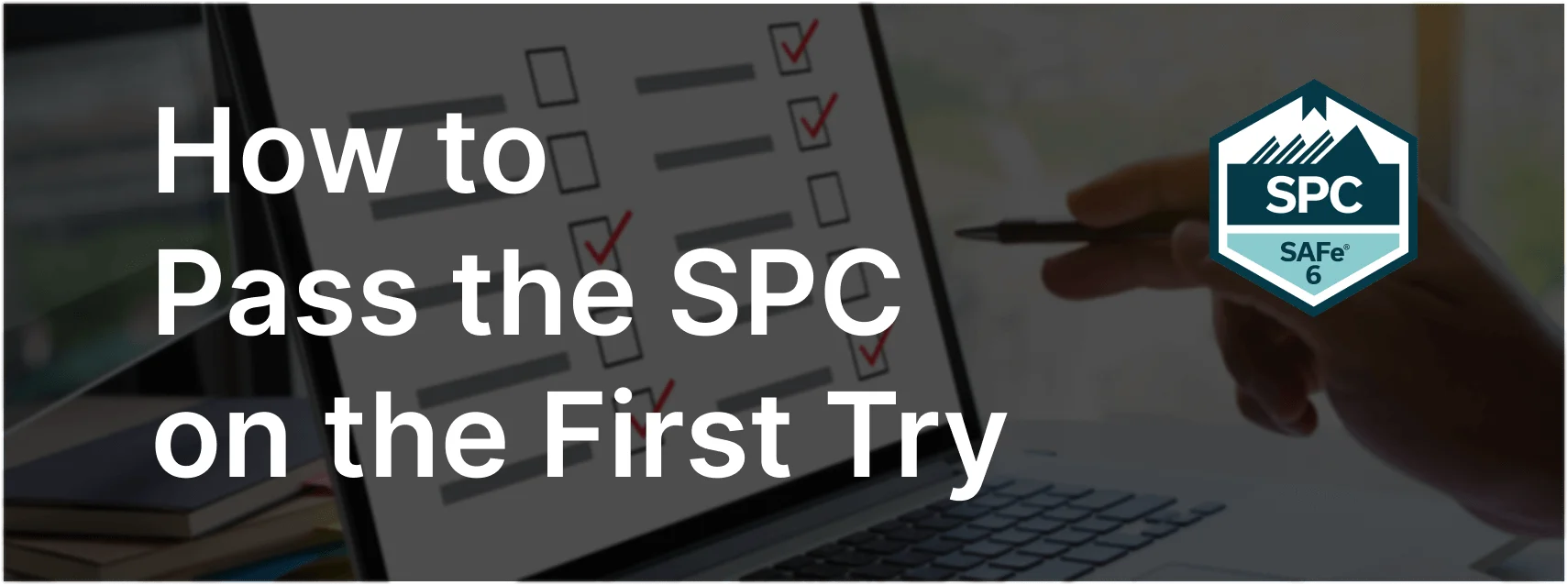Are you gearing up to undertake the Project Management Professional (PMP) certification exam? Are you aiming to achieve success on your initial attempt? In this guide, we will walk you through the preparation process for the PMP exam, offering valuable tips and strategies to increase your chances of success and secure a passing result on your first try. From study techniques to exam insights, we aim to provide comprehensive guidance to support your PMP exam preparation journey.
Table of Contents
Understanding the Project Management Professional (PMP) Exam
Before delving into tips and strategies, it’s essential to comprehend the nature of the PMP exam. The PMP certification assesses a candidate’s knowledge and skills in project management, covering a broad spectrum of project-related areas. The exam lasts for 230 minutes and consists of 180 multiple-choice questions. While the passing score is not publicly disclosed, it is widely assumed to be around 61% (approximately 110 correct answers out of 180).
Tips to Pass the PMP Exam on the First Attempt
Now equipped with an understanding of the PMP exam, let’s explore effective tips to enhance your preparation and increase your likelihood of passing the exam on your initial try.
Thoroughly Understand the Exam Content
Familiarize yourself with the PMP exam content outline available on the PMI website. This comprehensive guide outlines the topics and subtopics covered in the exam, serving as a foundational resource for your study plan.
Utilize Multiple Study Resources:
Enhance your preparation by leveraging various study materials. Incorporate a mix of study guides, practice exams, and online courses to gain a well-rounded understanding of the exam content.
Engage in Group Study:
Joining a study group can provide valuable support, motivation, and diverse perspectives on exam content. Collaborative learning can enhance your understanding and retention of key concepts.
Master Time Management:
Efficient time management is critical during the PMP exam, with approximately 1.28 minutes available per question. Practice time management through simulated exams, ensuring you can pace yourself effectively on the actual test day.
Grasp Project Management Principles:
Given that the PMP exam assesses your grasp of project management principles, ensure a solid understanding of fundamental concepts. Familiarize yourself with project initiation, planning, execution, monitoring and controlling, and project closure.
Take Practice Exams:
Engage in regular practice exams to simulate the actual testing environment and identify strengths and weaknesses. Utilize a variety of practice exams to gain a comprehensive view of potential question formats.
Project Management Professional PMP™ Exam Prep is an excellent resource to aid in your exam preparation. This course provides comprehensive practice exams and helpful resources to help you succeed on your first attempt. The practice exams offered in this course are designed to closely resemble the actual exam, providing a realistic testing environment that will help you build confidence and identify areas for improvement.
Leverage Exam Prep Resources:
Consider utilizing reputable exam preparation resources designed specifically for the PMP. These resources often provide realistic practice exams, offering a valuable gauge of your preparedness.
Address Weaknesses Strategically:
Once identified, focus on improving areas of weakness revealed through practice exams. Review related exam content, use different study materials, and ensure a comprehensive understanding of challenging topics.
Cultivate Confidence:
Maintain a calm and confident demeanor on exam day. Trust in your thorough preparation and stay focused on each question.
Read Questions Carefully:
During the exam, carefully read each question to fully understand its context. Take the time to evaluate all answer choices before making your selection.
Eliminate Incorrect Answers:
When uncertain about the correct answer, eliminate options you know are incorrect. This strategic approach enhances the probability of selecting the right answer.
Avoid Overthinking:
Trust your instincts and avoid overthinking questions. Opt for the answer that first comes to mind, minimizing the risk of second-guessing.
Manage Stress Effectively:
Implement stress-management techniques during the exam, taking breaks if necessary. Techniques like deep breathing can help alleviate stress and maintain focus.
Review Your Responses:
Upon completing the exam, review your answers to identify any potential mistakes or errors. Ensure a thorough check before submission.
Stay Updated on Project Management Trends:
Project management practices evolve, so staying abreast of the latest trends and best practices ensures your knowledge remains current.
Continuous Practice:
Even after passing the exam, continue practicing project management methodologies. This ongoing engagement helps solidify your skills and knowledge, keeping you relevant in the field.
Conclusion
Successfully passing the PMP exam on the first attempt necessitates diligent planning, thorough preparation, and consistent practice. Apply the tips outlined above to maximize your chances of success. Stay composed, confident, and focused on exam day, trusting in the comprehensive knowledge and skills acquired during your preparation. Consider incorporating reputable exam preparation resources, such as the Project Management Professional PMP™ Exam Prep, to further enhance your readiness. Best of luck on your PMP journey!
FAQ
Most frequent questions and answers
The Project Management Professional (PMP) certification is a globally recognized credential that validates an individual’s expertise in project management. Awarded by the Project Management Institute (PMI), the PMP assessment assesses your proficiency in various project management areas, including initiating, planning, executing, monitoring and controlling, and closing projects. PMP-certified professionals demonstrate a deep understanding of industry best practices, project lifecycle, risk management, stakeholder communication, and effective leadership skills. Holding the PMP certification signifies a commitment to excellence in project management and positions individuals as capable leaders capable of delivering successful projects in a wide range of industries and contexts.
The passing score for the PMP assessment is determined by a psychometric analysis and may vary.
Official PMP™ exam details:
- Passing score: PMI does not publish the passing score, but it is assumed to be in the range of 70%
- Time limit: 230 minutes
- Number of Questions: 180
- Format: Multiple Choice, Matching
- Difficulty: Advanced
- Language: English, Arabic, Japanese, Korean, Portuguese and Spanish
- Fee: PMI members $284.00; non-PMI members $555.00
- Prepare And Stick To A Good Routine Plan For Study.
- Read the PMBOK® Guide Before You Start Preparation.
- Use Exam Content Outline To Guide You Throughout.
- 35 contact hours of formal project management education.
- Refer To PMP Exam Prep Books.
- Join PMP Study Groups On Facebook and LinkedIn.
- Take ScrumPrep’s Exam Prep for Project Management Professional PMP™ practices questions until you consistently score 90-100%.
The amount of time it takes to prepare for the PMI-PMP exam varies depending on individual factors such as prior knowledge and experience with Agile methodologies and techniques. Generally, it is recommended to spend at least 1-2 months preparing for the exam, dedicating several hours per week to studying and practice exams. However, this can vary and some individuals may require more or less time to prepare.
The PMP exam content is reviewed and updated periodically to ensure that it remains relevant and reflects current project management practices and methodologies. The updates are typically made every 1-2 years. However, minor updates may also be made as needed to reflect changes in project management practices and techniques.
The CAPM (Certified Associate in Project Management) certification is designed for individuals who are new to project management or have limited project management experience. It focuses on the fundamental knowledge, terminology, and processes outlined in the PMBOK® Guide. The CAPM is ideal for those who want to demonstrate their understanding of project management basics and start their career in project management.
On the other hand, the PMP (Project Management Professional) certification is aimed at experienced project managers who have demonstrated competence in leading and directing projects. The PMP certification covers advanced project management concepts and practices, including initiating, planning, executing, monitoring and controlling, and closing projects. It is designed for professionals who are responsible for managing projects within the constraints of scope, time, budget, and quality, and it signifies a high level of expertise and experience in project management.
You can take the PMI-PMP exam multiple times. If you do not pass on your first attempt, you can take the exam up to three times within a year. If you want to retake the exam, the fee is $284 if you are a PMI member and $555 if you are not a PMI member.
Passing the PMP assessment demonstrates your ability to lead and direct projects, apply project management principles and best practices, and deliver successful project outcomes. It validates your expertise in managing projects within the constraints of scope, time, budget, and quality, and positions you as a capable leader in the field of project management. Earning the PMP certification signifies a commitment to excellence and enhances your credibility and marketability in a wide range of industries and project management roles.
Passing the PMP assessment demonstrates your ability to lead and direct projects, apply project management principles and best practices, and deliver successful project outcomes. This certification is highly regarded globally and signifies your expertise in managing projects within the constraints of scope, time, budget, and quality. Here are some specific benefits:
- Career Advancement: The PMP certification can open doors to new opportunities and career advancement. It is often a requirement or preferred qualification for senior project management roles across various industries.
- Global Recognition: PMP is a globally recognized credential that validates your skills and knowledge in project management, making you a valuable asset to employers worldwide.
- Increased Earning Potential: PMP certification holders typically command higher salaries compared to their non-certified peers. It demonstrates your capability to handle complex projects and deliver results efficiently.
- Enhanced Credibility: Achieving PMP certification enhances your professional credibility and validates your commitment to excellence in project management practices.
- Professional Network: Becoming a PMP connects you with a global community of project management professionals, providing opportunities for networking, knowledge sharing, and professional development.
- Continued Professional Development: Maintaining PMP certification requires earning Professional Development Units (PDUs), encouraging ongoing learning and skill enhancement in project management.
Overall, the PMP certification is not only a mark of professional achievement but also a pathway to greater opportunities, recognition, and success in the field of project management.
No, attending training or workshops is not mandatory for taking the PMP exam. The prerequisites for eligibility include:
- Four-Year College / University Degree
- 36 months of experience leading projects within the past eight years
- 35 hours of project management education/training or CAPM® certification
— or —
- High School or Secondary School Diploma
- 60 months of experience leading projects within the past eight years
- 35 hours of project management education/training or CAPM® certification
The PMP certification is valid for 3 years from the date it is awarded. To maintain the certification, a certified professional must earn and report at least 60 professional development units (PDUs) every three years. PDUs can be earned through various professional activities such as continuing education, professional training, and contributions to the field of project management.
Instructor’s Support and Guidance
Thanks to this course, I was able to pass the PMI-ACP exam with flying colors. The study materials were comprehensive and easy to follow, and the practice tests were invaluable in identifying areas where I needed to focus my attention. The instructor was supportive and knowledgeable throughout the process. I feel much more prepared for my future in the industry thanks to this course.
A Game-Changer
This course was a game-changer for me. The study materials were presented in a way that made sense to me, and the practice tests were incredibly helpful in building my confidence. Thanks to the instructor’s expertise and support, I was able to pass the PMI-ACP exam and feel more confident in my ability to excel in my role.
Instructor’s Supportive and Knowledgeable
Thanks to this course, I was able to pass the PMI-ACP exam on my first attempt. The study materials were presented in a way that made sense to me, and the practice tests were incredibly helpful in building my confidence. The instructor was supportive and knowledgeable throughout the process. I would highly recommend this course to anyone preparing for the exam..
Comprehensive and Easy to Follow
Thanks to this course, I was able to pass the PMI-ACP exam on my first attempt. The study materials were comprehensive and easy to follow, and the practice tests were incredibly helpful. I would highly recommend this course to anyone preparing for the exam.
Variety of Resources
I appreciated the variety of resources available in this course, from videos to practice tests. The study materials were well-organized and presented in a logical, easy-to-follow manner, and the instructor was supportive and knowledgeable. Thanks to this course, I feel much more prepared for my future in the industry.
Incredibly Helpful
I found this course to be incredibly helpful in preparing for the PMI-ACP exam. The study materials were comprehensive and easy to follow, and the practice tests were invaluable in identifying areas where I needed to focus my attention. Thanks to this course, I was able to pass the exam and feel more prepared for my future in my company.
Well-Organized Materials
This course was exactly what I needed to prepare for the PMI-ACP exam. The study materials were well-organized and presented in a way that made sense to me, and the practice tests were invaluable in building my confidence. I would highly recommend this course to anyone preparing for the exam.
Instructor’s Expertise and Support
I appreciated the instructor’s expertise and support throughout this course. The study materials were comprehensive and easy to follow, and the practice tests were invaluable in preparing for the PMI-ACP exam. Thanks to this course, I feel much more prepared for my future in the industry.
Invaluable Practice Tests
This course was well worth the investment. The study materials were comprehensive and easy to follow, and the practice tests were invaluable in identifying areas where I needed to improve. Thanks to the instructor’s support and guidance, I was able to pass the PMI-ACP exam and feel more confident in my ability to excel in my field.
Highly Recommended
I would highly recommend this course to anyone preparing for the PMI-ACP exam. The study materials were well-organized and presented in a logical, easy-to-follow manner, and the instructor was knowledgeable and supportive. Thanks to this course, I was able to pass the exam and feel more confident in my ability to excel in my job.







